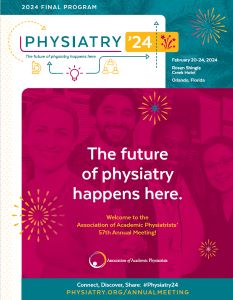SCI
Poster Gallery
1223 - Acute Onset of Back Pain, Paraplegia, and Urinary Retention following Cardioversion: A Case Report
Thursday, February 22, 2024
5:00 PM - 6:30 PM EDT
- AO
Amanda M. Olney, MD
Clinical Instructor House Staff, Department of PM&R
The Ohio State University
Columbus, Ohio, United States - SC
Sam Colachis, MD
Assistant professor
The Ohio State University
columbus, Ohio, United States
Presenting Author(s)
Co-Author(s)
Case Diagnosis: epidural hematoma; non-traumatic spinal cord injury
Case Description: A 58-year-old male with recurrent atrial fibrillation, coronary artery disease, hypertension was admitted for planned Sotalol drug load for recurrent atrial fibrillation and underwent successful direct current cardioversion during the admission without complications. He was instructed to continue anticoagulation for 4 weeks post cardioversion. The day after discharge (two days after cardioversion), he was readmitted to the hospital for acute mid-upper back pain that awakened him from sleep. He was hypertensive on presentation with elevated troponins. There was suspicion for cardiogenic source of his pain, so he was transitioned from his home rivaroxaban to heparin infusion. On hospital day 2, he developed acute paraplegia with urinary retention and was found to have a C6-T3 dorsal epidural hematoma with severe thecal sac stenosis and severe spinal cord compression on MRI. He underwent emergent C6-T3 laminectomy, hematoma evacuation, and fusion. He was admitted to inpatient rehabilitation for spinal cord injury rehabilitation.
Discussions: The patient’s hip abduction and adduction strength greatly improved during inpatient rehabilitation although he remained profoundly weak in the remainder of his lower limbs. He continued to have neurogenic bowel and bladder dysfunction requiring intermittent catheterization and bowel program on discharge.
Anticoagulant therapy is indicated in most patients with atrial fibrillation to decrease risk of thromboembolic events. It is known that anticoagulation therapy increases the risk of intracranial, gastrointestinal, and spinal epidural bleeding. Cardioversion may be associated with thromboembolism because of dislodgement of left atrial thrombi present at time of the procedure in patients who have not been anticoagulated. The procedure has not been associated with increased risk of bleeding such as epidural hematoma.
Conclusions: Healthcare providers should have high suspicion for spinal epidural hematoma in all anticoagulated patients who develop acute back pain or neurologic deficits.
Case Description: A 58-year-old male with recurrent atrial fibrillation, coronary artery disease, hypertension was admitted for planned Sotalol drug load for recurrent atrial fibrillation and underwent successful direct current cardioversion during the admission without complications. He was instructed to continue anticoagulation for 4 weeks post cardioversion. The day after discharge (two days after cardioversion), he was readmitted to the hospital for acute mid-upper back pain that awakened him from sleep. He was hypertensive on presentation with elevated troponins. There was suspicion for cardiogenic source of his pain, so he was transitioned from his home rivaroxaban to heparin infusion. On hospital day 2, he developed acute paraplegia with urinary retention and was found to have a C6-T3 dorsal epidural hematoma with severe thecal sac stenosis and severe spinal cord compression on MRI. He underwent emergent C6-T3 laminectomy, hematoma evacuation, and fusion. He was admitted to inpatient rehabilitation for spinal cord injury rehabilitation.
Discussions: The patient’s hip abduction and adduction strength greatly improved during inpatient rehabilitation although he remained profoundly weak in the remainder of his lower limbs. He continued to have neurogenic bowel and bladder dysfunction requiring intermittent catheterization and bowel program on discharge.
Anticoagulant therapy is indicated in most patients with atrial fibrillation to decrease risk of thromboembolic events. It is known that anticoagulation therapy increases the risk of intracranial, gastrointestinal, and spinal epidural bleeding. Cardioversion may be associated with thromboembolism because of dislodgement of left atrial thrombi present at time of the procedure in patients who have not been anticoagulated. The procedure has not been associated with increased risk of bleeding such as epidural hematoma.
Conclusions: Healthcare providers should have high suspicion for spinal epidural hematoma in all anticoagulated patients who develop acute back pain or neurologic deficits.

